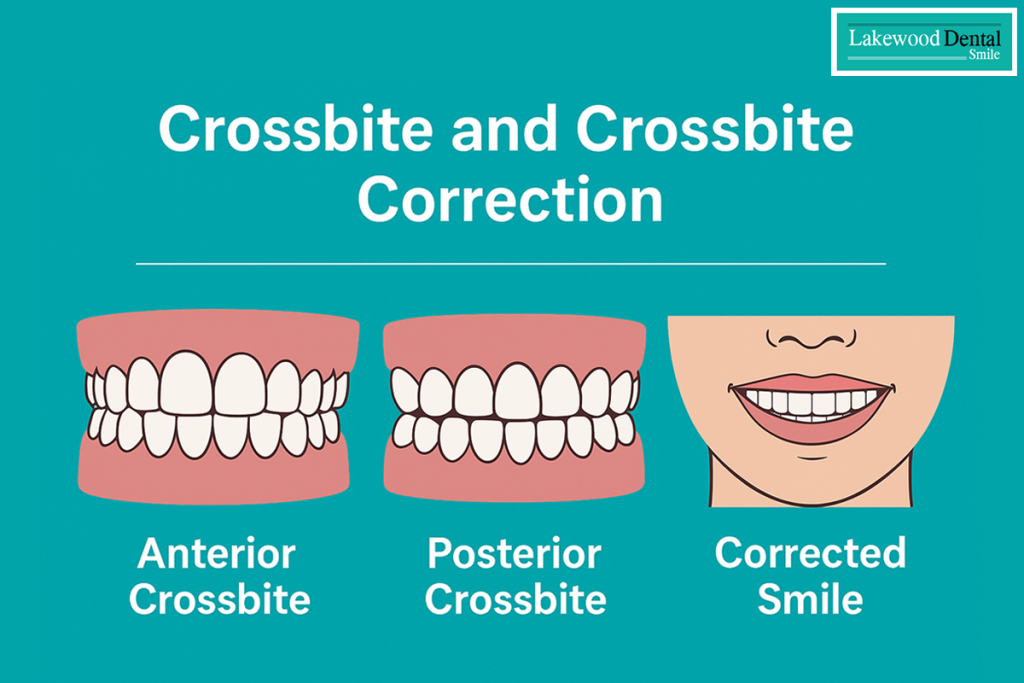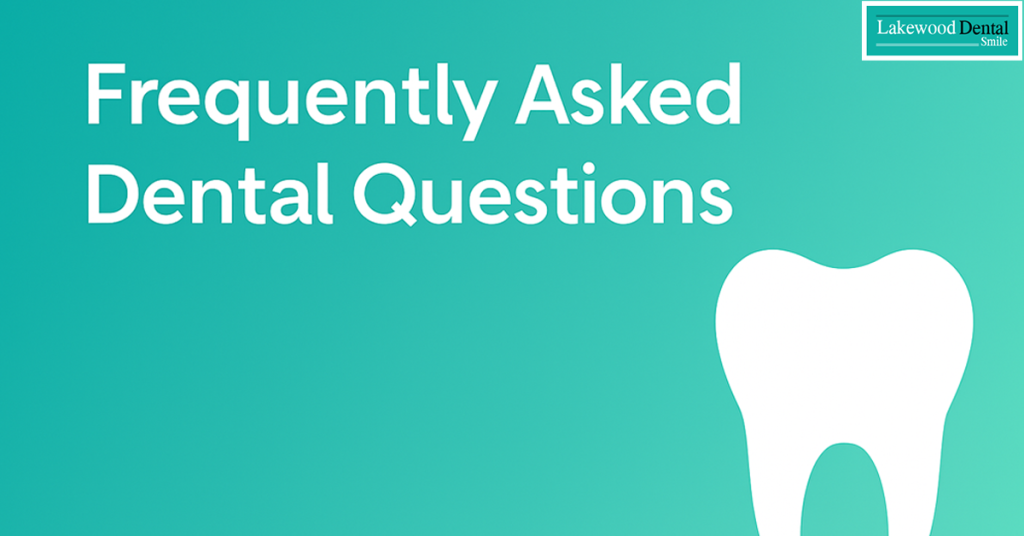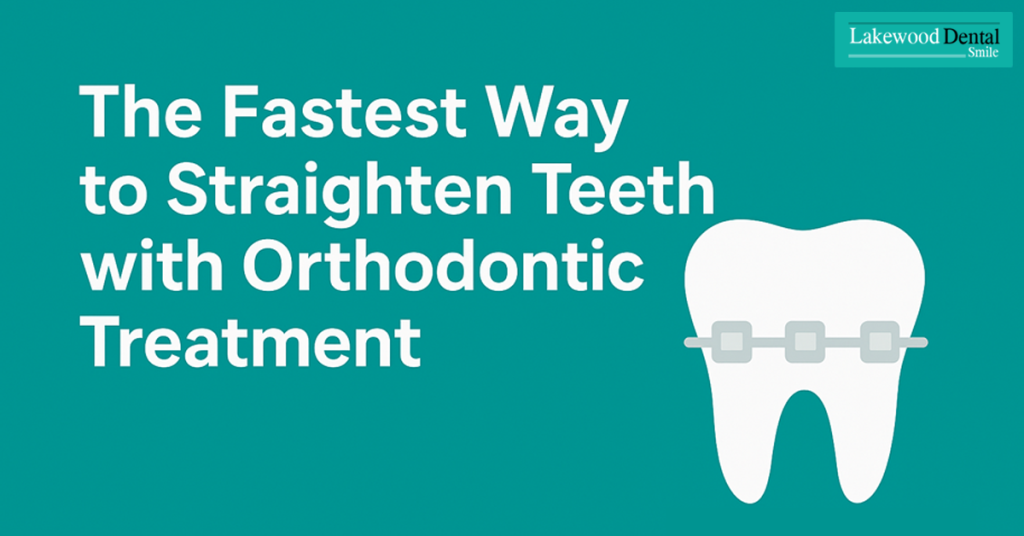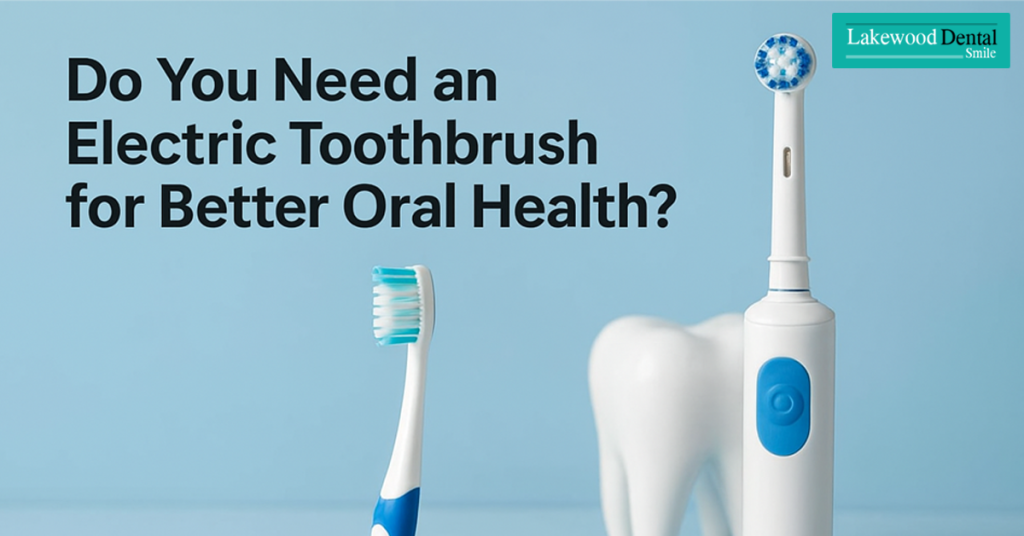You may not be completely familiar with what a crossbite is. What exactly does it mean? Can it be treated? And if so, what are the options?
In this blog, we’ll explain crossbite and crossbite correction, including the different types, the problems it can cause, and the most effective treatment options.

What is a Crossbite?
A crossbite doesn’t just affect the way teeth meet—it can also influence how you chew and speak. Children with crossbites may struggle with pronunciation or bite into food unevenly, which sometimes causes embarrassment. Adults, on the other hand, often report jaw fatigue or tension headaches linked to bite misalignment. Because the condition progresses gradually, many patients don’t realize the impact until a dentist points it out during a check-up.
This occurs due to abnormal tooth positioning or jaw alignment. In simple terms: the upper teeth don’t fit properly with the lower teeth.
Crossbites can be:
- Hereditary – passed through family traits.
- Situational – for example, when permanent teeth erupt before baby teeth have fallen out, preventing new teeth from growing in their proper position.
If left untreated, a crossbite can lead to long-term alignment issues that affect both dental health and facial structure.
Types of Crossbite
In some patients, both anterior and posterior crossbites may occur at the same time, creating what dentists call a mixed crossbite. This can complicate chewing even more and place additional strain on the jaw joints. Early intervention in such cases is highly recommended, as treatment tends to be more effective during growth years.
There are two main types of crossbite, and both may require crossbite correction to prevent complications:
- Posterior Crossbite
Occurs when the upper back teeth bite inside the lower teeth. This is one of the most common types and can cause chewing difficulties if not corrected.
- Anterior Crossbite
Similar to an underbite, this occurs when the top front teeth sit behind the bottom front teeth when biting. It often impacts appearance and bite function.
The good news is that both types of crossbite can be corrected. The earlier the treatment begins, the easier and more effective the results.
Problems Caused by Crossbite
Psychological effects should not be overlooked either. A child with an untreated crossbite may become self-conscious about smiling, while adults often avoid social interactions due to dissatisfaction with their smile. Over time, this emotional stress adds to the physical strain, making correction not just a cosmetic choice but a health necessity.
If untreated, a crossbite can cause:
- Cosmetic issues that affect the smile and facial structure.
- Jaw strain and TMJ disorders.
- Teeth grinding and premature wear.
- Loose teeth or gum recession.
- Speech or chewing difficulties in some cases.
The misalignment creates extra stress on the teeth and jaw muscles. In children, it may even alter natural facial growth. Early crossbite correction helps prevent these complications.
Crossbite Correction and Treatment Options
Most cases of crossbite and crossbite correction involve orthodontic treatments that gradually shift teeth or jaw position. The exact approach depends on the patient’s age and the severity of the case.
Common Crossbite Treatment Options
- Maxillary Expander – a device that widens the upper jaw to improve alignment.
- Removable Expander – often recommended for mild or adult cases.
- Braces – align teeth into their correct position once proper jaw space is achieved.
- Surgery – considered only for severe or complex adult crossbites that cannot be corrected with appliances alone.
In many cases, a combination of expanders and braces provides the best outcome. Dentists and orthodontists design each treatment plan individually after a detailed examination.
Takeaway: Why Crossbite Correction Matters
If you or your child has a crossbite, the best step is to consult a qualified dentist or orthodontist. They can identify the type of crossbite and recommend the most effective treatment plan.
📍 In Dearborn, Michigan, you can schedule a consultation with Lakewood Dental Smile. Our team specializes in crossbite correction and will carefully evaluate your bite to guide you toward the right treatment for a healthier, more confident smile.




